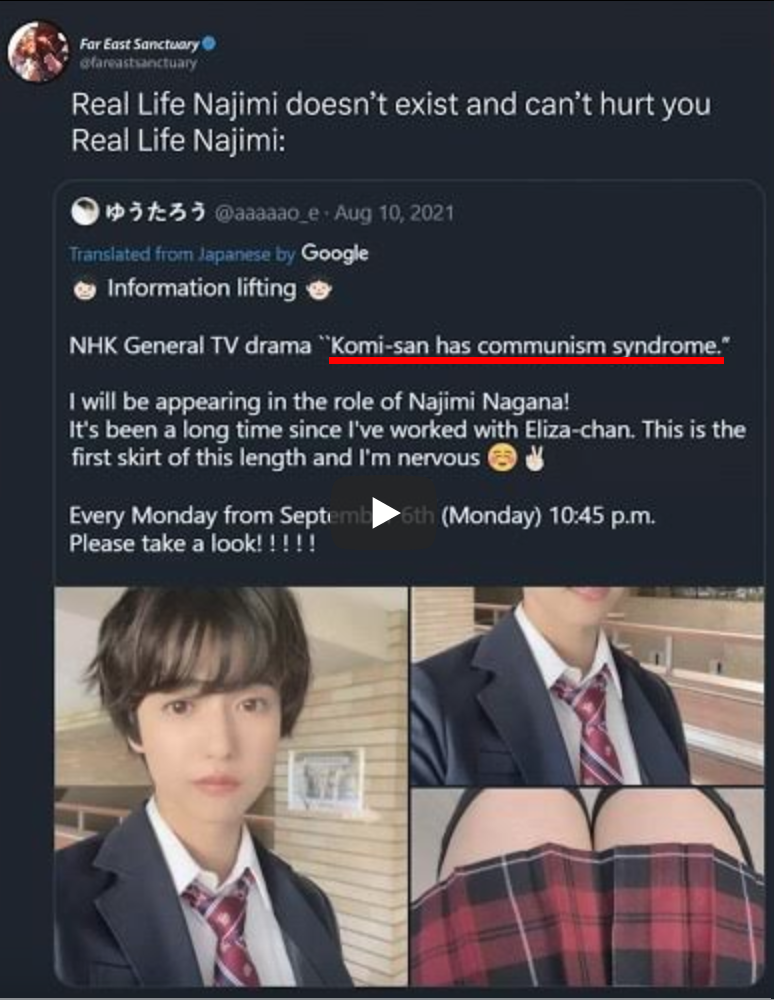The stadium was only filled 1/8th of its capacity. Nonetheless, boos and jeers could be heard when the Israeli national anthem was being played.
They're picturing a depressed person as a nihilistic killjoy that doesn't want to do anything and lives without a purpose, I'm assuming.

Just want an excuse to post this
Christopher Rodriguez tried to detonate a bag of explosives at the embassy in Washington, D.C., by firing a rifle at it but missed
They keep missing!
If you look at her Wikipedia page, it uses three different sources for hateful comments in "Russian state-owned media", and nothing dedicated to stuff at home...

As a history fact, Iranian Azerbaijan (which includes the provinces of East Azerbaijan, West Azerbaijan and Ardebil, sometimes Zanjan province is also included for being majority Azeri) is the OG Azerbaijan, with the modern country of Azerbaijan having historically referred to by other names:
The name Azerbaijan was first adopted for the area of the present-day Republic of Azerbaijan by the government of Musavat in 1918, after the collapse of the Russian Empire, when the independent Azerbaijan Democratic Republic was established. Until then, the designation had been used exclusively to identify the adjacent region of contemporary northwestern Iran, while the area of the Azerbaijan Democratic Republic was formerly referred to as Arran and Shirvan. On that basis Iran protested the newly adopted country name.
"Even though it's gotten to this point, you [government] plan to do nothing? If things continue like this, sooner or later, Japan will sink. Japan's talented animators and companies will be taken over by foreign companies. They'll be dominated -- exploited. That would be the case."
Said by an episode director, gotta shoehorn some xenophobic projection in there. Ew.

I keep hearing things about this show. Can someone educate me on it?
This is what the linked article on "Palestinian press" says about it:
Ottoman period (1908–1916)
Three of Palestine's leading newspapers of the pre-World War I era were Al-Quds (Jerusalem) established by Jurji Habib Hanania in Jerusalem in September 1908; Al-Karmil (Carmel after Mount Carmel) in Haifa by Najib Nassar in December 1908; and Falastin (Palestine) by the cousins Issa El-Issa and Yousef El-Issa in Jaffa in January 1911. These three newspapers voiced Arab aspirations and were all published by Palestinian Christians, showing the early role they played in Arab nationalism. In particular, Al-Karmil and Falastin were opposed to Zionism. It was in this early period that the terms "Palestine" and "Palestinians" were being increasingly used by the press.
These early Arab Palestinian newspapers saw Ottoman Jews as loyal subjects to the empire, but condemned Zionism, and grew fearful of it due to the waves of European Jewish immigrants to Palestine, who built settlements relying on Jewish labor and excluded Arab ones. Thus, Arab editors began a public awareness campaign, warning that once the Zionist project was fulfilled, the Arab majority and their lands in Palestine would be lost. A common theme in the press of this early period is a criticism directed towards the European Jewish immigrants who failed to integrate, or bother learning Arabic. The Arab editors preferred to raise the issue to the public's attention rather than the Ottoman authorities, so that the public can be active in preventing land sales to Jews, which caused Arab peasants' eviction, and their subsequent loss of work.
The readership of the newspapers in this early period was limited, but it had been expanding. Literacy rates were relatively low; however, social centers where created, such as libraries, the town cafe and the village guesthouse, where men would read aloud articles from newspapers and engage in political discussions. "Newspaper breaks" used to take place in some factories. There was also recorded instances of newspapers sending a copy of their newspaper to villages in the surrounding areas, namely Falastin. Articles from Falastin and Al-Karmil were often reprinted in other local papers and national ones in Beirut, Damascus, and Cairo.
It's ultimately a nothing-burger, which makes its featuring on "Did you know?" even more confusing. I couldn't find who nominated it and why, it seems too fresh to be archived so far.

I will say, if the commercial success of Mega Man 11 and the Battle Network Legacy Collection are any indication, there is still plenty of interest. It's just that Capcom doesn't do much with them, aside from mostly cameos and merchandise. It's mostly kept alive by fans at this point.
It's like a mirror version of the Sonic franchise: Sega can't make good Sonic games (consistently) but makes them anyway, while Capcom can make good Mega Man games but just chooses not to. Then again, maybe it's good that Mega Man isn't tarnished by Capcom's modern business model...
(Freiren wearing Kobun/Servbot earrings is a fun detail)


I heard once that it gets so bad in November in large part due to farmers in Punjab and such clearing their fields by burning the dead crops on it, something like that. Is that true?